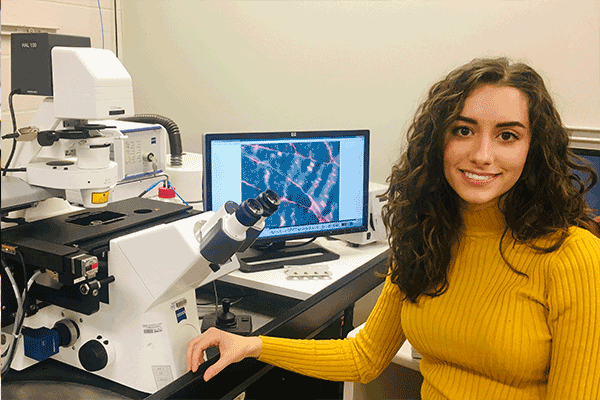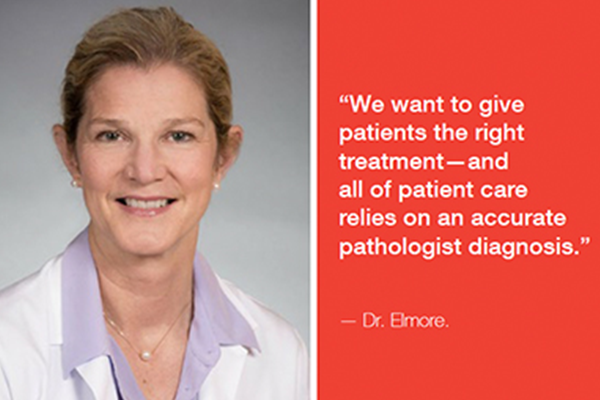News
Bridging the Knowledge Gap Through AI
30 April 2020 In Science
Meet Enrica Quattrocchi, a clinical dermatology fellow at the Mayo Clinic, and MRA Dermatology Research Fellow. Learn about her work and MRA's Dermatology Fellowship Award Program.
To the Twilight Zone & Back – Ian Schuman’s Story
By Cody Barnett, MPH, MRA Senior Director of Communications & Patient Engagement | 31 March 2020 In Melanoma Stories
For Ian Schuman, the news of his melanoma diagnosis came as a shock. For him, it all started in the spring of 2018 when he noticed a small lump on his left collar bone. As part of preliminary testing before the surgery to remove it, he also had a biopsy.
Dr. Villanueva Takes Aim at NRAS Mutant Melanoma
By Cody Barnett, MPH, MRA Senior Director of Communications & Patient Engagement | 28 March 2020 In Melanoma Stories, Science, Treatment
When Dr. Villanueva began her work in melanoma, some 15 years ago, it was the perfect scientific challenge. How could a disease be so aggressive – and still be such a mystery?
Then things got personal.
Coronavirus: What People with Cancer Should Know
24 March 2020 In News, Policy, Science, Treatment
Coronaviruses are a large family of viruses that are common in people and many different species of animals. CDC is responding to an outbreak of respiratory disease caused by a novel (new) coronavirus that was first detected in China and has now been detected in the United States and many other countries.
Harnessing Artificial Intelligence to Detect Melanoma Earlier
2 March 2020 In Science
As an internist, Dr. Joann Elmore was taught to ask questions. Those questions led her to spend much of her career in breast cancer research where she found extensive variability among radiologists’ interpretation of mammograms. “Radiology data is subjective, just like art. You’re being asked to classify visual data,” Elmore says.
Keeping You Connected to the Melanoma Community
By Cody Barnett, MPH, MRA Senior Director of Communications & Patient Engagement | 18 February 2020 In Allies & Partnerships
With the launch of the brand-new Inspire App, the Melanoma > Exchange community is getting even better. Available for iPhone and iPad – the app was designed from the ground up to make connecting and sharing even easier and as mobile as you are.
Combination Therapy: Why Timing Might Be Everything
By Rachel Fischer, Ph.D., Associate Director, Scientific Program & Registry | 13 February 2020 In Science
About half of all melanomas have a mutated BRAF gene. This mutated gene makes an altered BRAF protein, which leads to the uncontrolled growth of melanoma cells. Drugs targeting these altered BRAF proteins, such as Vemurafenib and Dabrafenib have been approved for the treatment of BRAF+ melanoma.
Clinical Trials to Watch: Intralesional Therapies for Melanoma
By Kristen Mueller, PhD | 8 February 2020 In Science, Treatment
To an outsider, the number of new treatment options for melanoma may seem to be moving at a breakneck pace. Checkpoint immunotherapy and BRAF/MEK inhibitors have greatly improved outcomes for many late-stage melanoma patients, with over 50% of patients on combination ipilimumab/nivolumab still alive after 5 years.
Stage 4 Melanoma, a Vaccine Clinical Trial, and the Power of Family & Faith
By Cody Barnett, MPH, MRA Senior Director of Communications & Patient Engagement | 7 February 2020 In Melanoma Stories, Science, Treatment
“Clinical trials allow you to take advantage of the latest research and experiences from doctors and patients who’re blazing the trails. Clinical trials are also a way for you to help the next person who is going to have to go through this. If you have the opportunity to be part of something that helps others, why wouldn’t you at least try it?”
Melanoma Research Advances – 2019 in Review
By Marc Hurlbert, PhD, MRA Chief Executive Officer | 27 January 2020 In Policy, Prevention, Science, Treatment
During 2019, melanoma research continued its rapid pace of advancement, with FDA approval of a new adjuvant therapy treatment option, several first-in-human clinical trials, and significant progress towards earlier intervention.










